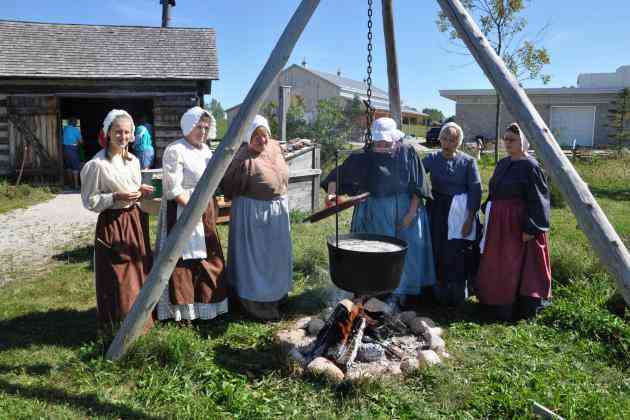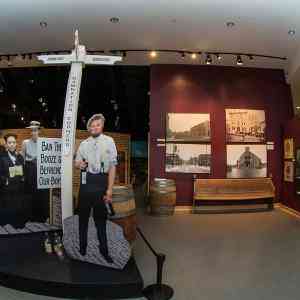
Letters for Mother’s Day
Once a year, on the second Sunday in May, we honour our mothers. Although this tradition has much older roots—Mothering Sunday in England has been celebrated since the seventeenth century—the Canadian Mother’s Day began in 1915. It was adopted from the United States, where Anna Jarvis of Grafton, Virginia lobbied for its official recognition in memory of her own mother, Anne Marie Reeves Jarvis (1832 – 1905). In 1914, President Woodrow Wilson acknowledged her request.
Jarvis envisioned a day when sons and daughters would return to their childhood homes or write letters to their mothers. The practise of writing a letter to one’s mother was by no means a new concept. The Archives at Grey Roots has some such letters to mothers (and fathers) written once a child left home, whether this was after they travelled from the “old country” to Grey County, or during World War I and II. In honour of Mother’s Day, here are excerpts from two of these letters.
The first is from a letter written by Jonathan Rumsby to his parents, Nathan and Maria, which is part of the Frank Bassingthwaite Collection in the Archives. It was written shortly after his arrival in America, dated September 20, 1851.
Dear Mother, I think it is time to ease your mind where I am for I reached home on the fifth of September for I was on the water eight weeks but thankfully I had my health very well all the time and I had money I could live very well. If not I should have been half starved but I have found a good home now and I expect to live with my Uncle this winter for harvest was most all done when I got here so I shall not be able to earn much this winter but I like the country.
Dear Mother send my kind love to my sisters and brothers and let them know that I am got here safe and tell them they need not thinks is a wild country for there is as fine farms and towns as they are in the old country.
Rumsby emigrated from Suffolk, England to America in 1851 at the age of 18. He settled in St. Vincent Township sometime before January 1868, when he married Margaret Marshall. After she passed away (c.1886) her sister—whom he later married—helped him look after his five children. He was a farmer for most of his life and in a letter to his brother in Suffolk from 1909, he recounts that he was getting “lame like father was with rumatics after fifty-two years of hard labour in this country.” After his death in March 1917, the Meaford Express recognised him as “one of St. Vincent’s most favourably known residents.”
Away from home for a different reason, Thomas Horace Chisholm (1893 – 1963) wrote letters to his parents, Archibald George and Elvira of Holland Township, after enlisting as a signaller with the 147th Battalion in February 1916. Included in the set of his letters from the Marion Seeley Collection are some from Amherst, Nova Scotia (October to November 1916); Shoreham-By-Sea, England (November 1916 to March 1917); and, “Somewhere in France” (March 1917 to June 1917). He was wounded in June 1917 and invalided home. The following excerpt is from a letter written on May 9, 1917 after his mother had sent him a care package.
I received your letter of the 10th yesterday, and was glad to get all the news. Also the box, everything was in the best of condition. I could not wait till tomorrow to eat the cake, as we made a little move and it would get broke if I tried to carry it around. I got the nickel when I was cutting it and also the button; the other boys were looking for something in their piece but did not get anything. Say! mamma those apples were fine it has been so long since I tasted a good apple I had forgot what they were like, only one of them was bad, and it was over half rotten but the others do not even have a bad spot on them. Everything in the box was in first class shape and I am going to put the socks on tonight.
These letters from Rumsby and Chisholm, written to ease their parents’ minds and keep them appraised of their lives away from home, remind us that letters are easily written and have inestimable value to the recipient.
Soon after Jarvis succeeded in establishing Mother’s Day in 1914, it became commercialized with gifts of chocolates, flowers and pre-written cards instead of the personalized letters that she had intended. Jarvis protested against this commercialization, feeling that the purpose of Mother’s Day had been violated. Amid the pressure to buy “things” for our mothers, it is important to remember the reasons for which we honour them, and to realize that a few handwritten words can be enough.
Portrait of an unidentified mother and son from PF304, Rodger Renton Collection, Crispin Family Records









